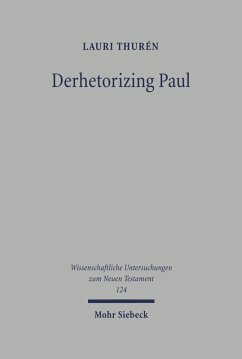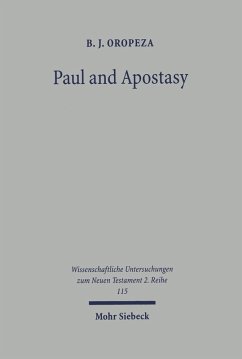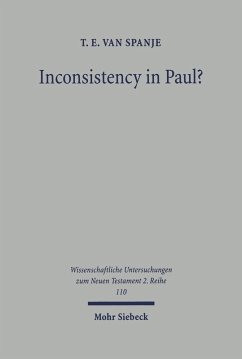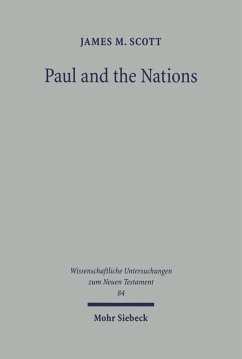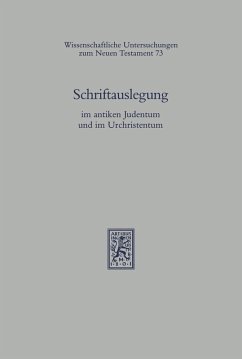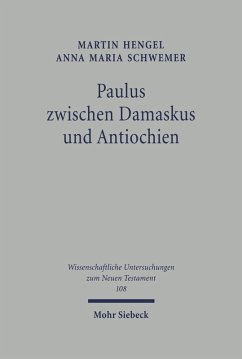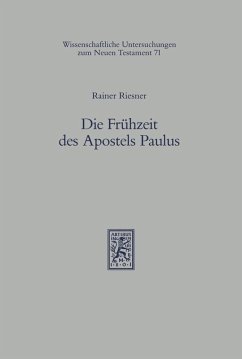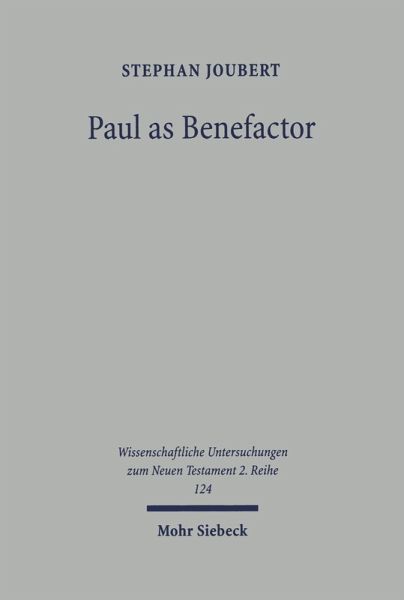
Paul as Benefactor (eBook, PDF)
Reciprocity, Strategy and Theological Reflection in Paul's Collection

PAYBACK Punkte
0 °P sammeln!
Reciprocity was at the heart of all forms of benevolence in the ancient Greco-Roman world. The bestowal of gifts usually initiated long-term relationships that involved mutual obligations and clear status differentials between the parties concerned. The leadership of the Jerusalem church requests at the so-called Jerusalem meeting ' not to forget the poor' (Gal. 2:10), was interpreted by Paul in terms of these principles. In response to their benefactions, the Jerusalem church demanded that Paul address the needs of the socially destitute in their midst. In order to fulfill these obligations t...
Reciprocity was at the heart of all forms of benevolence in the ancient Greco-Roman world. The bestowal of gifts usually initiated long-term relationships that involved mutual obligations and clear status differentials between the parties concerned. The leadership of the Jerusalem church requests at the so-called Jerusalem meeting ' not to forget the poor' (Gal. 2:10), was interpreted by Paul in terms of these principles. In response to their benefactions, the Jerusalem church demanded that Paul address the needs of the socially destitute in their midst. In order to fulfill these obligations towards Jerusalem, but also in view of the fact that the church in Antioch did not live up to their responsibilities in this regard, Paul then took it upon himself to organize a collection in the Christian communities under his control. Paul utilized specific rhetorical strategies and contextual 'theologies' in the course of the collection project to ensure its completion, but also to secure his role as benefactor of Jerusalem. Paul and Jerusalem's conflicting ideologies threatened the eventual success of the collection. In anticipation of a possible rejection of the collection, Paul offered a new ideological angle of incidence to this project. In a 'Christian' reinterpretation of the basic principles of benefit exchange, Paul turned the collection into an 'eleventh hour success' within the framework of his communities. Although Luke is not well-informed on the Pauline collection, he presents us with the basic outlines of Paul's final visit to Jerusalem to deliver the collection. From the available information it may be deduced that Paul devised an emergency solution to ensure the eventual acceptance of the collection by the Jerusalem church. However, Paul's imprisonment brought an abrupt end to this imaginative project. Born 1958; 1986-90 Minister in the Dutch Reformed Church; 1990-97 Assistant Professor in Biblical Studies, University of Pretoria; 1997-2002 Professor in New Testament Studies, University of Pretoria; 2005-09 Extraordinary Professor in New Testament Studies, University of Pretoria; since 2011 Research Fellow, Radboud University, The Netherland; since 2013 Extraordinary Professor, Contemporary Ecclesiology, University of the Free State, South Africa.
Dieser Download kann aus rechtlichen Gründen nur mit Rechnungsadresse in A, B, BG, CY, CZ, D, DK, EW, E, FIN, F, GR, HR, H, IRL, I, LT, L, LR, M, NL, PL, P, R, S, SLO, SK ausgeliefert werden.




